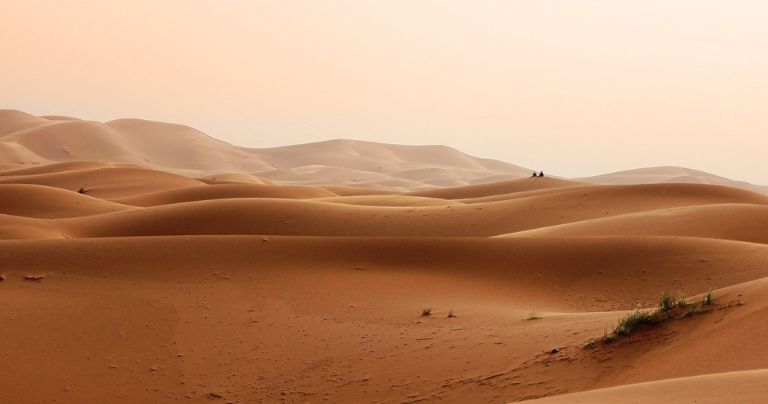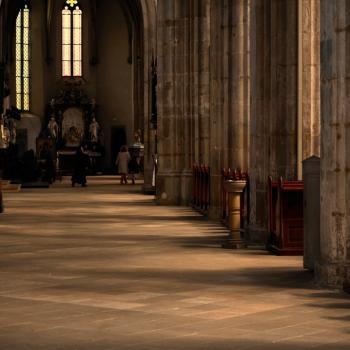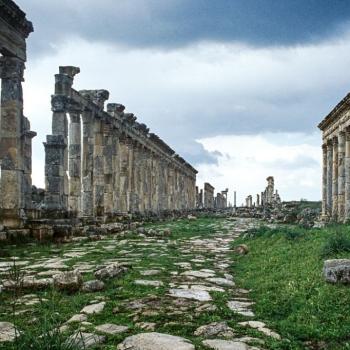On April 12 of this year, Muslims started to fast from sunrise to sunset, abstaining from drinking and eating, allowed only to break their fasting with a meal at the end of the day with family and friends. They will keep doing it for 30 days, until a three-day festival known as Eid al-Fitr, which marks the end of Ramadan, the month during which they believe that the prophet Muhammad received the Quran, the Islamic holy book, from the angel Gabriel. (Baines, n.d.) However, what does this month mean for a pre-Islamic witch?

What is Ramadan?
Attar (2021) explains that “during Ramadan, Muslims aim to grow spiritually and build stronger relationships with Allah. They do this by praying and reciting the Quran, making their actions intentional and selfless, and abstaining from gossiping, lying, and fighting.” The author also details that :
Throughout the month Muslims fast, also refraining from drinking and sexual intercourse between sunrise and sunset. Fasting is obligatory for all Muslims, except for the ill, pregnant, traveling, elderly, or menstruating. Days missed fasting can be made up throughout the rest of the year, either all at once or one day here and there. (…) Muslims aim to grow spiritually and build stronger relationships with Allah. They do this by praying and reciting the Quran, making their actions intentional and selfless, and abstaining from gossiping, lying, and fighting.
About the conclusion of this month, History.com Editors (n.d.) says that:
The conclusion of Ramadan is marked with a major celebration known as Eid al-Fitr (or Eid ul-Fitr), the Feast of Fast-Breaking. It starts the day after Ramadan ends and lasts for three days.
Eid al-Fitr includes special prayers and meals with friends and relatives, and gifts are often exchanged.
Finally, it is important to consider the words of Chtatou (2020) when he explains the spiritual importance of this practice:
The fasting of Ramadan leads man to make a constant effort to fight his weaknesses and passions, to constantly improve, to become totally humanized.
The principle of fasting is linked to self-control. It is the affirmation of man’s will and freedom in relation to himself and his immediate desire to satisfy his basic needs.
It is also a bond of solidarity with the hungry, who must be helped to escape from their situation of destitution and misery.
Ramadan in pre-Islamic Times
Chtatou (2020) also explains that “Ramadan originally meant “great heat,” an image taken from the pre-Islamic solar calendar. This month was sacred in the pre-Islamic Arabic tradition and was a month of truce.” Not only this, but the roots of it are also in the pre-Islamic world, possibly with an influence from India. Goitein. (1968) says that:
Pre-Islamic Arabs were familiar with the idea of holy months as well as with fasting. Certain passages in the Koran and some Muslim oral traditions make it likely that even the practice of fasting during a whole month was known to the ancient Arabs.
It is also worthy to read Dr. Rafat Amari’s article “Ramadan and its Roots“, since it gives many details about this practice in the pre-Islamic world. However, it was very similar to the Muslim world we know nowadays, with even a hadith* referring to it in Bukhari 5:58:172, as it gives details about this practice:
Narrated ‘Aisha:
‘Ashura’ (i.e. the tenth of Muharram) was a day on which the tribe of Quraish used to fast in the pre-lslamic period of ignorance. The Prophet also used to fast on this day. So when he migrated to Medina, he fasted on it and ordered (the Muslims) to fast on it. When the fasting of Ramadan was enjoined, it became optional for the people to fast or not to fast on the day of Ashura.
The “Great Heat”
Keeping all this in mind, it would make sense to practice Ramadan, although we could argue a bit on the name. According to information in al-Muntakhab min Gharīb Kalām al-ʿArab, by Kurāʿ an-Naml, and Lisān al-ʿArab, by Ibn Manẓūr, Nātiq (نَاتِق) was the pre-Islamic name of this month, although I also found that Ramzan is the name used in India, possible before the Arabic name we all know about came to be.
Now, if the case is about a month during which the heat is unbearable, we could say that even deadly being in a desert, it is easy to imagine that food and water would be scarce. Having sex would also be out of the question to save energy for daily activities. It would be a time to be humble, charitable, understanding, prudent, patient, and caring toward others.
However, it wouldn’t be plausible to many to pray five times during a single day, at least it is not an option for me right now. Many Muslims around the globe can make it and I respect them for that, because the commitment and organization to do so mustn’t be easy, but it out of my possibilities right now and many others’. Instead, praying five times at the end of the day fits better. I’m not the best one fasting, and sometimes you need to get what’s available, so I can also propose one symbolic sacrifice or fast. Coincidentally, after so many bad news, I got many good ones and I decided to fast, abstain for chocolate for four months.
I would be telling my experience with this as often as possible and sharing as much as I can, and I would like to invite you to do the same. Finally, it seems like a positive time to connect with the jinn, spirits of fire and wilderness, but taking care to listen to them, along with Al-‘Uzza, the pre-Islamic goddess of war, protection and healing. And, of course, praying only is not enough. Try to do something significant for your community, doesn’t matter what, how, or how often, but doing something nice for someone.
References:
- Attar, E. (2021). Why Ramadan is the most sacred month in Islamic culture. National Geographic. Retrieved 22 April 2021, from https://www.nationalgeographic.com/culture/article/ramadan.
- Baines, W. The Origins of Ramadan. Beliefnet.com. Retrieved 22 April 2021, from https://www.beliefnet.com/faiths/islam/the-origins-of-ramadan.aspx.
- Chtatou, M. (2020). Understanding Ramadan, Its History, and Original Meaning. Morocco World News. Retrieved 22 April 2021, from https://www.moroccoworldnews.com/2020/04/300806/understanding-ramadan-its-history-and-original-meaning/.
- History.com Editors. Ramadan. History. Retrieved 22 April 2021, from https://www.history.com/topics/holidays/ramadan.
- Sahih al-Bukhari, Vol. 5, Book of Merits of Al-Ansaar, Hadith 172
- S.D. Goitein. (1968). Studies in Islamic History and Institutions (Netherlands: EJ Brill).
- *A hadith or athar in Islam refers to what the majority of Muslims believe to be a record of the words, actions, and the silent approval of the Islamic prophet Muhammad.


















